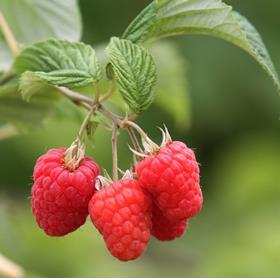
The James Hutton Institute’s raspberry-breeding consortium (RBC) is looking forward to another five years of continued research after securing new funding.
The Dundee-based research institute boasts one of the leading berry breeding programmes in the country, exploring new varieties of blackcurrants, blueberries, blackberries and raspberries.
Jamie Smith, business development manager at James Hutton Limited, said the Institute remains open-minded for other potential partners to participate in their raspberry consortium, which boasts a team of dedicated staff including plant breeders, scientists and industry-wide collaborators.
“We are fortunate and thankful for some of the funding to come from a combination of the Scottish government and the AHDB, the rest comes from the industry partners themselves,” Smith said.
“With this support secured, we are just now finalising the partners that that will allow us to continue for another five years, which is really exciting.
“There’s a limited number of spaces available for partners in the programme, however at the moment there is a least one space for anyone who still wanted to get involved in developing improved genetics.”
With leading laboratory facilities and a team of scientists on board, Smith said the Institute’s breeding programme offers an attractive and unique opportunity. “What we think sets our breeding programme apart is the value for money and the science we have got behind it. What we’re trying to do is speed up the process for our customers with the use of genetic markers and partial genomic selection, we have developed markers for beneficial traits such as fruit size, fruit softening and root rot already and have heat tolerance and maturity also being sought after. It certainly opens up opportunities for breeding varieties much quicker.”
Last November, the Institute announced the forthcoming release of two new promising primocane raspberry varieties for early and late season harvest, to help extend the production season.
Smith added that James Hutton Ltd was also feeling good after maintaining its ‘fast-track’ export agreement with the Australian plant quarantine and import services enabling the Institute unrivalled dispensation to supply new Rubus plant material into the country in half the recognised quarantine period.
“The authority recognises the high plant health standards we have, so instead of it taking three years, it takes material supplied from our facilities only 18 months,” said Smith.






No comments yet